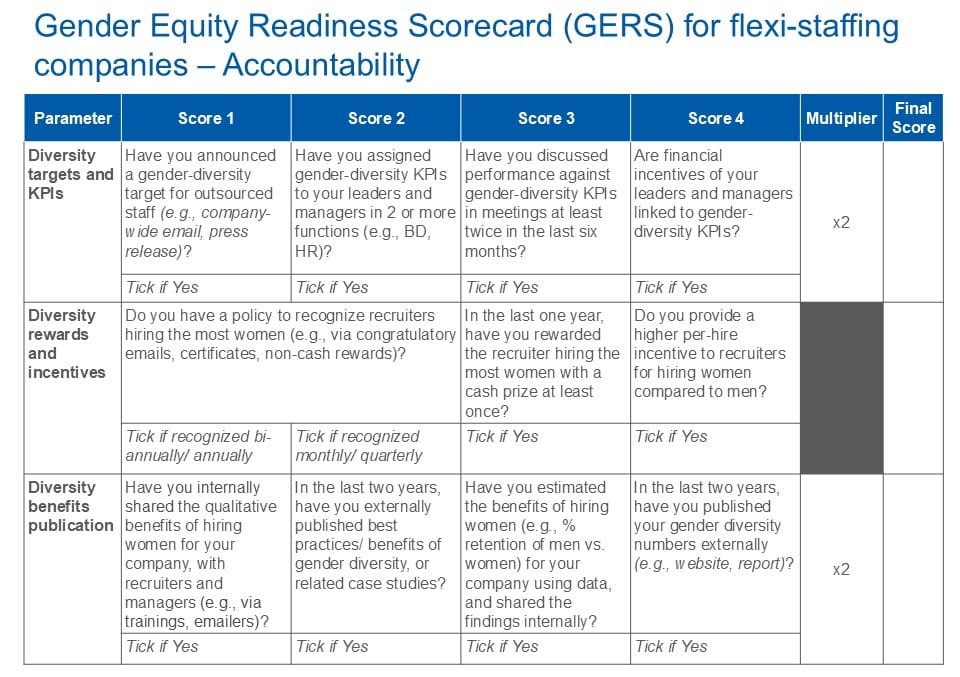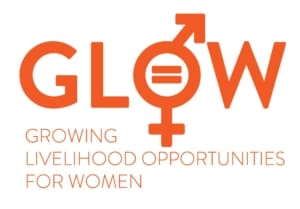Growing Livelihood Opportunities for Women
Tracking Progress on Gender Diversity through GERS - Flexi-staffing
A scorecard to assess flexi-staffing companies on their performance on gender equity in entry-level outsourced roles, and identify areas of improvement

What is the GERS Scorecard?
The Gender Equity Readiness Scorecard (GERS) is an open-source tool developed by FSG’s GLOW program. The purpose of the GERS tool is to offer a quick, objective assessment of gender equity in the entry-level outsourced roles of a flexi-staffing (FS) company.
This tool:
- Is designed to focus on gender equity in general staffing (i.e., all sectors except IT/ ITeS1)
- Does not include scores on parameters mandated by law (e.g., creche facilities, maternity leave)
- Is designed to be used by either the companies themselves or independent evaluators
- Is designed to be completed within 20-30 minutes
- Is recommended to be used annually/ bi-annually to track progress
What are the criteria for assessing gender equity progress in the GERS?
The Gender Equity Readiness Scorecard (GERS) for FS companies evaluates the progress on gender equity across three types of criteria:
- Outcome criteria focus on the representation of women in outsourced roles and male-dominated industries
- Accountability criteria look at the company’s commitment to gender equity through targets, tracking mechanisms, incentives, and internal/ external communication
- Capability criteria measure efforts to build organizational skills, awareness, and resources to support gender equity
How can FS companies and ecosystem players utilize the GERS to advance gender equity?
FS companies can use the GERS to:
- Get a clear, objective baseline of the company’s performance on gender equity in entry-level outsourced roles
- Identify the next set of policies and practices they can implement to improve gender equity
- Track the company’s progress over time in becoming more gender-ready, and boosting women’s participation
Ecosystem players (e.g., governments, funders) can leverage the GERS to:
- Nudge companies to prioritize gender equity by mandating/ incentivizing an annual self-assessment through GERS
- Benchmark companies on their performance on GERS and recognize companies leading the change
- Identify emerging trends (e.g., rise in inclusive hiring) and challenges (e.g., limited migrant support) related to gender equity
- Use GERS insights to prioritize specific policies, incentives, and programs for improving gender equity in the industry
To access the GERS for FS companies, click here >
[1] IT/ ITeS refers to Information technology/ Information technology-enabled services industries

